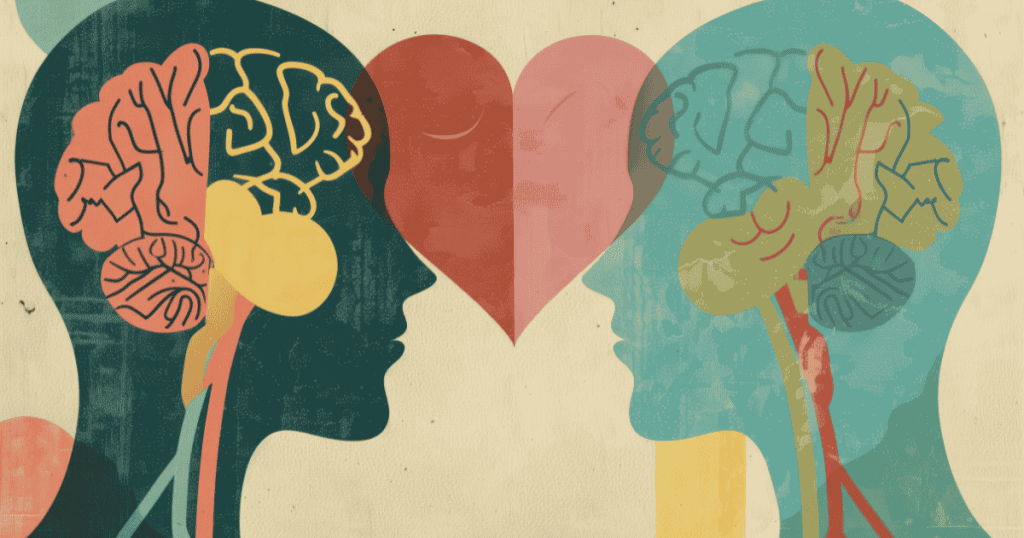By the time I realized she was a narcissist, I was already doubting my sanity.
What I needed back then was not therapy, but strategy.
I used to think I was overreacting.
Maybe I was the one being too harsh, too sensitive, too cold.
Turns out, I was under-protecting.
I spent years walking on eggshells in my own home, gaslit into thinking my instincts were flawed.
That every boundary I tried to draw was selfish. That every “No” I whispered was an act of rebellion.
My mother was always the life of the party in public and the storm behind closed doors.
She praised me in front of strangers and picked me apart in private.
Nothing I did was enough, and everything I didn’t do was a personal attack.
It wasn’t always screaming or insults. Sometimes it was a smirk, a subtle dismissal, a conversation hijacked just as I opened up.
And I accepted it, because “that’s just how she is.”
But I started learning.
I began testing the people around me before offering up the softest parts of me.
And guess what? The results never lied.
This isn’t about healing. It’s about staying ahead. About trusting your gut before you’re too deep.
These 5 tests are simple. They’re not dramatic, and they don’t require confrontation.
But they work. Every time.
5 Effective Tests to Spot Narcissists

You don’t need to call narcissists out.
You don’t even need to warn them.
Just watch.
These subtle tests will reveal more than any fight ever could.
You don’t need a checklist of red flags if you can observe how they respond to your truth, your no, your joy, and your pain.
That’s where they slip up every single time.
Test 1: The Empathy Test

A few years ago, my toxic younger brother was struggling.
He was having a hard time in school, his confidence was shot, and I was trying to be his anchor.
I was drained. Concerned. Exhausted.
So I confided in someone I thought would care. A maternal figure I had always admired, someone in our extended family.
Her response is, “You’re always so emotional. Maybe he just needs to toughen up.”
Not a single question about how I was holding up.
Not one ounce of warmth.
Just cold advice wrapped in superiority.
She then launched into a long rant about how my generation was too soft, how she never needed help, and how she raised three kids on her own.
I remember sitting there, feeling like I had just tried to offer a flower and got slapped instead.
That was the first time I realized that narcissists don’t empathize.
They compare.
They compete.
And they center themselves.
Watch how these red flags show up in this test:
- Dismissive comments when you share something real.
- Conversations that get hijacked and redirected toward their own stories.
- Discomfort or mockery when faced with raw emotion.
Empathy isn’t just a soft skill. It’s a relationship requirement.
And if someone can’t even fake it for two minutes when you’re vulnerable, they’re showing you exactly who they are.
Test 2: The Boundary Test

I remember when I politely declined a weekend trip my toxic sister had planned.
I had a job, obligations to keep up with, and a body that was worn out.
She didn’t respond for days.
When she did, it wasn’t to check on me. It was to tell my narcissistic mom that I was being ungrateful, distant, and “too big for my boots.”
The punishment was silence. Then shaming.
When I stood my ground, she tried to recruit others to guilt me.
She sent a message in the family group chat about how “people today don’t know the meaning of family.”
That right there is a classic narcissistic boundary violation.
Not by stepping over the boundary, but by weaponizing guilt to make you move it.
Here’s what to look for when you try this test:
- Guilt-tripping after you say “no.”
- Silent treatment or passive-aggressive comments.
- Treating your needs as attacks.
The irony is, narcissists will call you disrespectful for setting boundaries while showing none for yours.
Healthy people ask, “What do you need?”
Narcissists ask, “How dare you?”
Test 3: The Accountability Test

One Sunday, my toxic mother snapped at me during lunch.
I was talking about something I was excited about. A new opportunity.
Out of nowhere, she cut me off with a jab, “Don’t get ahead of yourself. You always think you’re better than your siblings.”
It stung. Bad.
Later that evening, I approached her gently.
I said, “That comment earlier hurt me. I wasn’t trying to brag. I was just excited.”
Her response was, “You always twist things. I didn’t mean anything. If you got hurt, that’s on you.”
Zero ownership. Zero pause. Just instant deflection.
That’s the thing with narcissists. They don’t apologize. They attack your character for needing one.
Pay attention if you notice these patterns:
- Defensiveness when confronted with even gentle feedback.
- Blaming others or redirecting blame entirely.
- Labeling your hurt as overreacting.
Accountability is a mirror.
Narcissists avoid it like it burns.
Test 4: The Validation Test

After I graduated with honors, my dad and cousins threw me a small celebration. They were beaming.
My self-absorbed mom, though, sat in the corner. She was quiet, distant, and unimpressed.
Later that night, she said, “Don’t let this get to your head. There are people with PhDs out there.”
I didn’t need a parade.
I just needed my mom to be happy for me.
Narcissists struggle to share joy, especially if it’s not centered on them.
They might act supportive in public, but in private, they’ll clip your wings.
These signs reveal exactly what you’re dealing with:
- Lack of genuine enthusiasm for your wins
- Sarcastic or dismissive remarks
- Turning your success into a competition
Validation isn’t just compliments.
It’s the ability to hold space for someone else’s light without needing to dim it.
Test 5: The Conflict Test

One Christmas, I expressed that I didn’t agree with how a certain tradition was handled.
I suggested a gentler approach for my younger cousins.
My mother reacted the only way she knew how.
With fury.
She said, “You think you’re better than the way I raised you? Don’t forget who you owe.”
It escalated fast.
I hadn’t raised my voice or disrespected anyone, but the very act of speaking up was seen as betrayal.
If these show up, you’re likely facing a narcissist:
- Emotional volatility when you disagree.
- Weaponizing past sacrifices to silence you.
- Turning healthy conflict into a personal attack.
You don’t have to be mean to trigger a narcissist.
You just have to be different.
What These Tests Really Reveal?

You’re Not Overreacting, You’re Observing
If you’ve read this far and felt that ache in your chest, the one that whispers, “This is what I’ve been living through,” then let me say this:
You’re not imagining it.
No, you’re not too sensitive or broken. You’re simply waking up.
You’re learning to see clearly what you were once trained to explain away.
There was a time I excused every red flag.
I defended them because I loved them. I thought that’s what love did.
I thought being a “good daughter,” a “mature sibling,” or the “bigger person” meant letting things slide, shrinking myself to keep the peace.
But the truth is, love doesn’t require you to lie to yourself.
It doesn’t ask you to abandon your intuition or punish you for having boundaries.
It doesn’t leave you exhausted, confused, or doubting your worth.
You’re not overreacting. You’re simply observing, collecting evidence with quiet strategy, and refusing to beg anyone to change.
That’s your power now.
You’re no longer trying to win their approval. You’re watching how they behave when they think you’re not watching.
You’ve learned these important things:
- The person who respects your “No” without needing an explanation is the safe person.
- The one who listens without twisting your words is the trustworthy one.
- The one who celebrates you without competing is the one who loves without condition.
Keep observing. Keep protecting yourself.
You don’t need a dramatic confrontation. You just need your clarity.
And that’s something no narcissist can survive.
They’ll Fail These Tests Without You Saying a Word

I no longer raise my voice or write long paragraphs trying to explain myself.
I no longer twist myself into knots, hoping they’ll “get it.”
I run the test.
And when it fails, I walk away.
Lighter. Quieter. Stronger.
What I’ve learned is simple. You don’t have to fight for proof or plead for change. You only need to trust what’s right in front of you.
Because when someone reveals their patterns, that doesn’t create confusion. It gives you clarity.
I used to think I needed a big reason to walk away.
A final straw. A huge blow-up.
Now? I just need one moment of truth, one test failed, and that’s enough.
Not because I’m cold, but because I’ve finally decided I’m done bleeding for people who refuse to see me.
The truth is, these tests aren’t designed to catch people. They’re not games or traps, and they’re never about punishment.
They’re about protecting your peace.
About permitting yourself to stop explaining what someone keeps proving they don’t care to understand.
So the next time someone’s presence feels heavy and your gut clenches while your mind tries to explain it away, run the test.
Watch their response and let their behavior do the talking.
And remember that you’re not hard to love.
You’re just no longer easy to manipulate.
And that, my dear, is your power.
Related posts:
- How To Talk Like a Woman Narcissists Can’t Manipulate (Even If They Try)
- The 6 C’s of Narcissism: I Didn’t Know I Was Being Abused Until I Learned These
- 7 Dirty Tricks Narcissists Use to Keep You Stuck (And How I Made Them Regret It)
- Think You’re The Narcissist? 5 Signs You’re Not, You’re Just Hurt
- What I Say When People Ask About My “Estranged Narcissistic” Family


